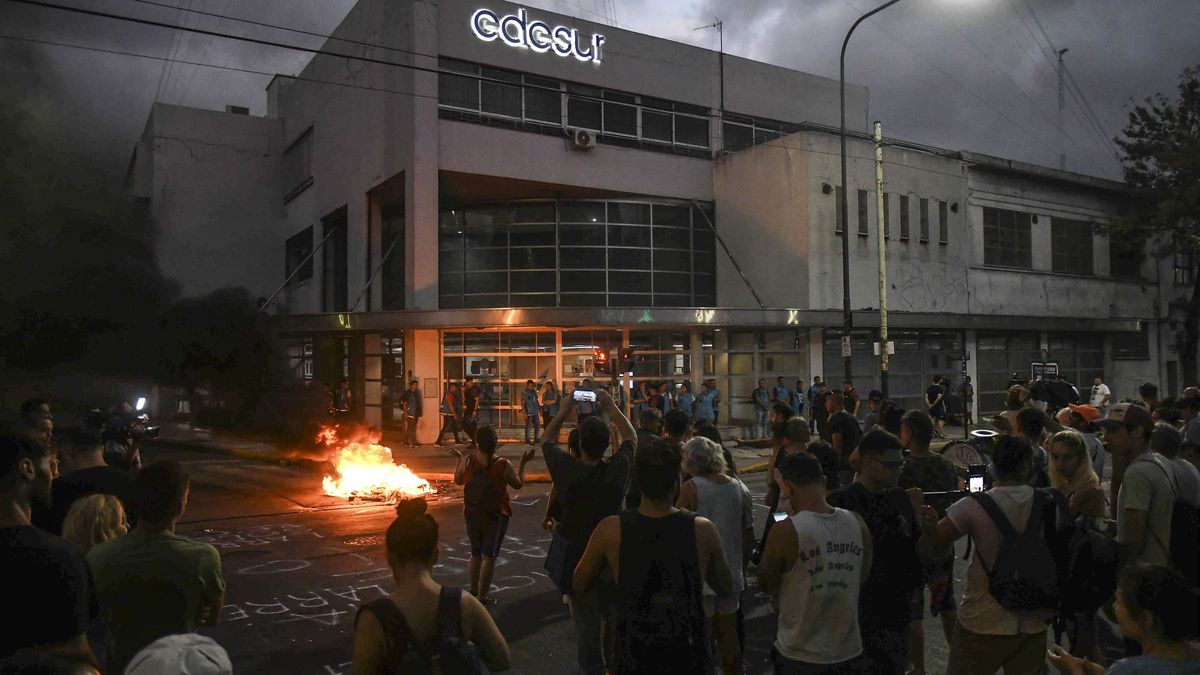The National Electricity Regulation Entity (IN RE)which heads Walter Martelloalready has the audit carried out on the company Edesur. The document, of more than 200 pagesensures that The distributor has debts of more than $20,000 million, equipment from the 50s, a reduced number of personnel, and “lack of investment.”
The work was handed over to the Secretary of Energy, Congress and the unions. In any case, the document does not have solutions in sight. About the facilities, he assures: “They are inadequate to face the service in the required conditions (saturation/load), not even in normal conditions”. And adds: “They require structural adaptation times that make definitive solutions difficult in the short term.”
In the future, sources from the Ministry of Energy, which heads Flavia RoyonThey assured this newspaper that Edesur was asked for “more details and hard data.” The company has 10 days to respond. Edesur sources questioned the work by assuring that it has inconsistencies: “We are analyzing it, but we already have some observations. The report contains inaccuracies and the analysis is far from the regulatory and economic reality,” they replied to Ambit.
Audit
The audit of Edesur was requested by the Government to end of february this yearto determine the quality of the public electricity distribution service established in the concession contract, in a context of heat wave, increased demand and deficiencies in the service, which led to power outages and demonstrations in different neighborhoods of the Capital and Greater Buenos Aires.
The conclusion of the audit carried out by the ENRE refers to the investments: “We are facing a company that did not make the corresponding investments to have facilities in minimum acceptable conditions and to be able to satisfy the required demand.” Furthermore, he adds: “This problem is of such magnitude that it is not reversible in the short or medium term. given that neither the company nor the market have the technical capacity to comply with it in a short period of time”.
About him equipment, the ENRE details: “Original equipment (1950s and 1960s) continues to be used in transformer substations, switches, cables, protections, etc. This highlights the obsolescence”.
investments inre.PNG
Besides, andThe organization is critical of the conduct of the company Edesur, whose authorities were legally denounced: “Business management has not been satisfactory: having a short-term vision that postpones the true needs of the systems.” It assures that the financial deficit of the company is the product of the “lack of efficient management”, and that “it had the necessary financial resources to comply with the established obligations”. The ENRE informs that Edesur owes $19.5 billion to the Treasury for unpaid sanctions, not counting compensation to users, unpaid balances to Cammesa and intercompany loanswhich “affect the future of the distributor.”
In addition, it refers to the response to user complaints: “There is a small number of personnel (especially their own) to restore the service and maintenance to the point of not being able to comply with the daily routine.” The investigation ensures that the number of crews fell by 60% during the 2022-2023 summer, in a context where the number of failures increased. “During the summer there were no more than 223 daily crews, and they had 26 days, 21% of the days between December and the end of summer, with more than 70,000 daily claims,” he details.
ENRE’s work is critical with internal user response processes: “When more than 2,000 claims accumulate, prior to assigning it to crews, the distributor carries out a telephone “Call Campaign” to users, from a “private phone” If they do not answer, close the claim as fulfilled, forcing the user to claim again”.
Response from Edesur
The Edesur company, which is in the process of being sold by the Italian Enel, is very critical of the audit, considering it “inconsistent”. As an example, the ENRE work ensures that the company had the resources, but also that it was financed by not paying Cammesa. One of the reasons that always stands out from the company is the lack of rate increases: since the increase made in March 2019 under the management of Mauricio Macri, up to the present, inflation has accumulated almost 700%, against an Added Value of Distribution (VAD) that climbed 173%, taking into account what was applied in May 2021, March 2022 and April 2023.
In addition, they will reject the argument of lack of investment, with the numbers of the annual investments of the balances, and the data that the power outages dropped from 33 annual average hours per client to 14, until before March.
Source: Ambito




